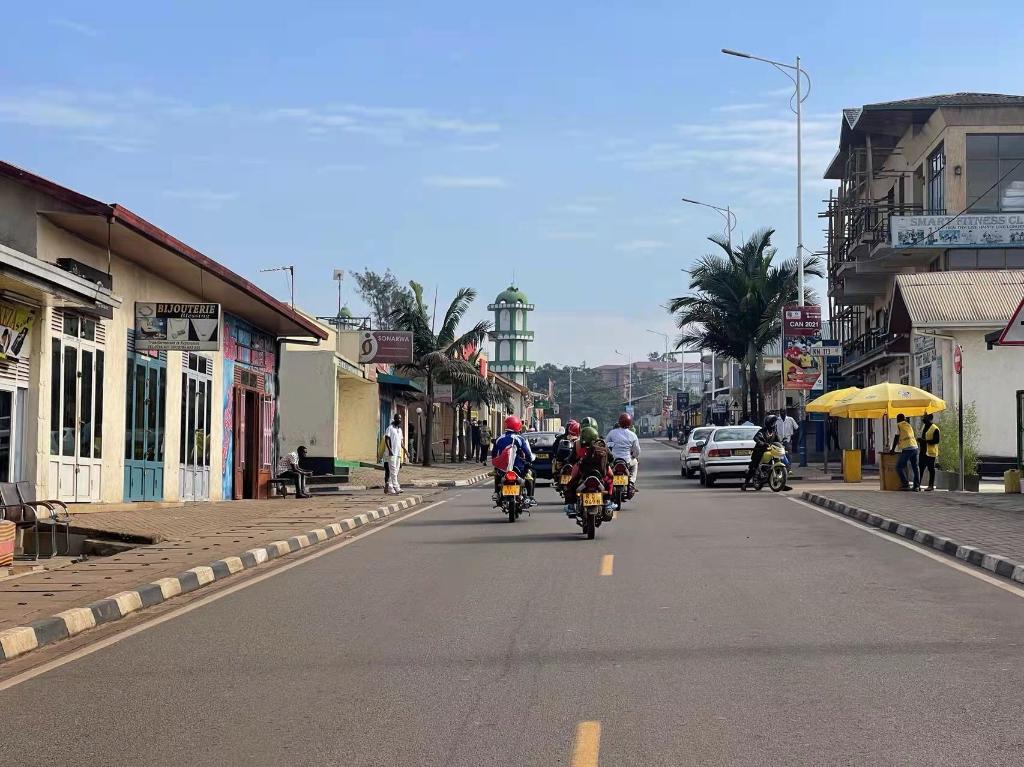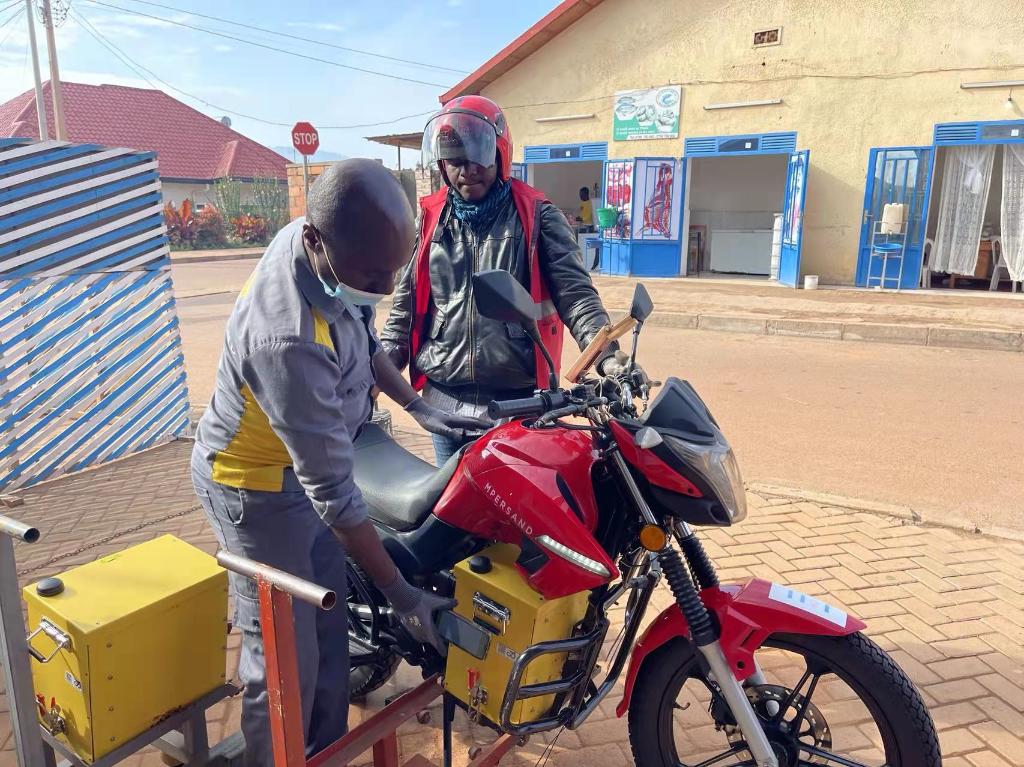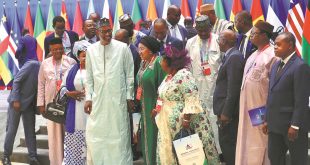Published: January 04,2023

Motorbike taxi drivers ride e-scooters in Kigali, the capital of Rwanda, Feb. 27, 2022. (Photo by Martina Fuchs/Xinhua)
Motorcycle riders providing services to passengers in Rwanda tell how Chinese-built high-quality roads in the East African nation are helping grow their business.
On a chilly December morning, Emmanuel Niyoyita, a motorbike taxi rider in the east African country Rwanda, is busy cleaning his motorbike with a wet cloth while patiently waiting for a passenger.
While waiting for business around the Kicukiro trading center located along the road connecting the capital city Kigali to Bugesera District in Eastern Province, Niyoyita said he is among a growing number of riders of motorbike taxis, locally also known as moto-taxi, that offer ride services for passengers from the Sonatube roundabout in Kigali to the Akagera bridge in Bugesera District.
He said thanks to Chinese companies’ involvement in the nation’s transport sector development, the improved road transport system has become a major boost to the fast-growing commercial motorist business because the roads are of high quality, which makes it easy to travel from one location to another.
“Every day, I wake up early in the morning between 5 a.m. and 6 a.m. because many passengers travel from Bugesera to Kigali and vice versa for business. The road has been upgraded by the Chinese company. There are no potholes anymore. It is now a seamless ride from Kicukiro trading center to Nyamata Town in Bugesera District,” Niyoyita told Xinhua in an interview.

A worker changes a battery for a motorbike driver in Kigali, the capital of Rwanda, Feb. 27, 2022. (Photo by Martina Fuchs/Xinhua)
“We make a lot of money from transport fares because many passengers, including foreigners and tourists, prefer moto-taxi to public buses,” Niyoyita said.
He said there are times when he also rides on the Kigali-Bugesera road for pleasure because the road provides comfort and beautiful scenery.
As Niyoyita is still waiting for a passenger, numerous motorbike taxi riders in red and green helmets can be seen busy hurtling among the heavy traffic on the road.
“The Chinese are good at road construction, and you can see how the roads are strong, smart, and of standard quality. The roads are big, which allow smooth flow of traffic, and this has attracted many moto-taxis to operate on these roads,” said Samuel Twagiramungu, another moto-taxi rider.
He said he makes profits because driving on these Chinese-built roads from one place to another takes the shortest possible time since the roads provide a smooth ride, enabling him to transport as many passengers as possible in one day.
Niyoyita and Twagiramungu are among a growing list of motorbike taxi riders in Rwanda, especially in Kigali, whose lives have been improved by operating moto-taxis due to high demand from customers. According to the Rwanda Federation of Taxi-Moto (RFTM), there are about 46,000 moto-taxi riders registered in the country, with 26,000 of them operating in Kigali.
“The roads have become the symbol of China-Rwanda relations because we are seeing many roads in Rwanda constructed by the Chinese. The Chinese are smart and faster in their job,” Daniel Ntaganda, the chairperson of the RFTM, told Xinhua.
He said the federation is registering more moto-taxi riders due to a good transport network system and an increase in the number of businesses that depend on moto-taxi for the transportation of people and goods.

A motorbike taxi driver rides an e-scooter in Kigali, the capital of Rwanda, Feb. 27, 2022. (Photo by Martina Fuchs/Xinhua)
In Rwanda, Chinese firms such as the China Road and Bridge Corporation, and the China Civil Engineering Construction Corporation, among others, are active in the nation’s road construction, especially in Kigali and other major towns. These roads are designed and constructed according to Chinese standards. Apart from providing comfort to motorists, Chinese companies have also provided employment opportunities to many Rwandans.
The roads constructed in Kigali are part of the Kigali Infrastructure Project (KIP) to build a 215-km road network and several bridges by 2024, MerardMpabwanamaguru, City of Kigali’s vice mayor in charge of urbanization and infrastructure, told local media recently.
More than 70 percent of Rwanda’s national highways and municipal roads were built by Chinese contractors, according to last year’s data from the National Institute of Statistics in Rwanda.
Xinhua
 Africa -China Review Africa -China Cooperation and Transformation
Africa -China Review Africa -China Cooperation and Transformation
